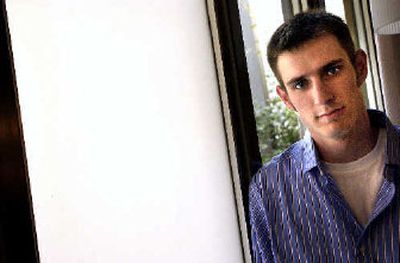Displaced students move quickly

Some students spend years deciding where they’ll go to college.
Last week, Arthur Rowe spent about a day.
Rowe, a 19-year-old Indianapolis man, was prepared to start his sophomore year at Tulane University when Hurricane Katrina struck Sept. 4.
By Wednesday of that week, he figured Tulane wouldn’t reopen this semester. By Thursday, he was on a plane to Gonzaga University, one of nearly 20 students from New Orleans schools who have quickly transferred to the Spokane Jesuit university.
“It was a very stressful time,” Rowe said Wednesday, in an interview after his classes. “I got about two pairs of shorts and my laptop before I left.”
Though many others suffered worse fates, an estimated 70,000 or more college students in coastal Louisiana, Mississippi and Alabama were displaced by Katrina, according to an estimate in the Chronicle of Higher Education. Schools around the country have responded by opening their classrooms to students and professors and conducting a variety of fund-raising efforts.
By Wednesday, Gonzaga had accepted 18 students, mostly from Loyola University of New Orleans, a sister Jesuit institution. Washington State University had admitted four students and was talking to another seven, the school said. The University of Idaho and Whitworth College each offered 10 scholarships to displaced students.
“Every part of the campus really had a quick gut response,” said Nancy Hilliard, UI spokeswoman. “We all wanted to do something now.”
Among fund-raisers planned is a benefit concert 8 p.m. Tuesday at the UI administration auditorium. The program is being conducted by the UI’s Lionel Hampton School of Music, along with WSU’s music program.
Most of the 10 scholarships at Idaho have been taken already, and the calls are still coming in, said Dan Davenport, the UI’s director of admissions and financial aid.
“I’ve probably talked to 30 families at least,” he said. “These kids are just scrambling, trying to figure out what the heck to do.”
Spokane native Joe Escandon had just finished the first week of classes at Tulane Law School when the hurricane hit. Like other students, he left quickly but didn’t prepare to be gone long – so most of his clothes, books and other supplies are still in New Orleans.
On Wednesday, he found out he’d been accepted at the University of Washington Law School, with a tuition waiver.
“Law schools have been incredibly generous,” said Escandon, 23, a graduate of Lewis and Clark High and the UW. “They’re offering to take in students with ties to the region, waiving tuition – just being incredibly supportive.”
It’s been a highly uncertain time for the students, waiting for word about school closures and trying to sort out what to do next – all while classes at most colleges and universities are just getting started. University officials working in admissions and housing have been harried as they field calls of inquiry and try to make arrangements for incoming students.
Whitworth spokesman Greg Orwig said the school had been in contact with several students from Louisiana State University who are interested in coming to the college for its athletic training program – a relatively rare discipline.
Rowe had been interested in Gonzaga before he settled on Tulane. He and his parents had just moved him into his New Orleans apartment when they decided to evacuate on Sept. 3, driving back to Indianapolis.
By midweek, Rowe realized he needed a Plan B, and he put in a call to GU. In less than a day, he was flying to Spokane. Though some students are getting tuition waivers, Rowe said he hadn’t paid tuition at Tulane yet and expected to pay it at GU.
“Most kids, when they’re looking at colleges, have a year to decide, or six months,” he said. “This was a lot different – like 24 hours.”
But students also realize that their hardships pale compared to the deaths and chaos suffered by people who were stranded by the storm.
“I got out,” said Escandon. “That’s what really matters.”